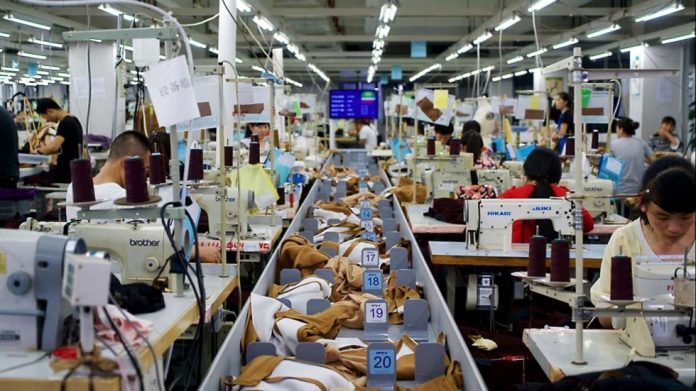Malaysian Businesses Remains Positive Despite Looming US Trade War
Approximately 67% business leaders in Malaysia are optimistic that the business environment will improve over the next 12 months due to the greater stability in the global economic environment, the Malaysian Business Sentiment Survey 2018/2019 revealed. However, the increased rhetoric of a trade war between the United States and its leading trading challenges remains a concern among business firms in Malaysia and the region.
Despite growing concerns, the spirit of the local business community remains optimistic with 71% confident about their business prospects. This optimism is partly due to increased infrastructure investment along with the greater adoption of Industry 4.0 technologies.
The biggest issue that concerns the local market is the increasing cost of doing business, which will have an impact on the bottom-line of these firms. The second major issue is the weakening Malaysian currency, which will severely impact firms that are dependent on import goods in their production process.
The Malaysian Business Sentiment Survey 2018/2019, conducted by Monash University Malaysia in collaboration with CPA Australia and Global Asia in the 21st Century Research Platform, gathers the opinions, voice and feelings of the country’s business leaders. The survey highlights concerns that could potentially affect businesses seeking growth through investments in existing products and services in new markets. These findings merit attention if Malaysia is to remain competitive in a global economy without borders.
“The Malaysian Business Sentiment Survey helps measure the confidence of local business leaders across key macroeconomic areas, and provides them a platform to voice their sentiments and estimations about the business environment in the country. The survey is to effectively comprehend the Malaysian business community. The primary objective of the survey is to enable decision makers, business leaders, and key stakeholders in taking pro-active measures to improve the local business environment and build a competitive advantage among firms in the country,” said Professor Mahendhiran Nair, Chief Executive Officer of Monash Malaysia Research and Development (MMR&D) and Vice President (R&D). “One of the key discoveries from the survey is that global markets have become more stabilised and economic growth numbers in many of the economies are on an upward trend. This has had a positive impact on the Malaysian economy. However, potential full-blown trade wars between the US and its trading partners may adversely impact the growth trajectories of the major economies in the world, business sentiment across the globe and growth potential of firms in Malaysia. To mitigate these economic risks, firms are intensifying their market opportunities within the domestic economy and expanding their operations in ASEAN and other Asia-Pacific markets,” he added.
Other highlights from the survey indicate that:
• 36% of businesses identified cost management as their prime strategic/investment priority over the next 12 months, followed by seeking new markets (33%), improving business processes (24%), marketing and branding activities (23%) and developing business relationships (20%).
• 6% are of the view that the business environment will worsen
• 59% of respondents informed that the government as a buyer is somewhat significant for their business
• 40% of the CEOs and senior managers responded that the most important ability to cultivate to stay competitive in the future is the ability to maintain good governance, transparency, and accountability in managing their businesses, an increase of 22% compared to 2017.
• 24% of the respondents reported that their sales priority over the next 12 months will be to develop new products/services for existing markets
According to Professor Pervaiz K Ahmed, Co-Director of Global Asia in the 21st Century and Deputy Head of School (Research), School of Business, Monash University Malaysia, “CEOs and senior managers are of the view that for firms to be competitive, they will have to embrace the digital economy and Industry 4.0; which will enable them to extend their reach for talent, resources, market intelligence, networks and markets”. The top digital technology identified as important to remain competitive by respondents is mobile technologies for customer engagement, which stands at 36%. This is followed by digital payment technologies at 34%, and socially enabled business processes at 28%.
CEOs and senior managers also highlighted the importance of universities nurturing talent that will enable firms to enhance their innovative capacity, process improvement, and product development. They believe that the top three primary focus areas of universities should be to collaborate with industry (33%), followed by ensuring the R&D initiatives undertaken by universities meet the needs of industry (30%) and universities develop training programs that are relevant and benefits industry (30%). They believe that creative, highly articulate and self-motivated graduates are important for enhancing the innovative capacity of firms in a competitive global economy.
“The Malaysian Business Sentiment Survey highlights the complex environment that Malaysian businesses face. The survey shares the options that business leaders should consider in navigating through their business environment,” said Professor Pervaiz.
“Monash Malaysia continues to work closely with businesses and industries in nurturing creative talent in the innovation-driven economy as we recognise the importance of guiding graduates to improve their employment opportunity. We will continue to strengthen the triple-helix” produce graduates that can power the next wave of progress for Malaysia,” concluded Professor Nair.
The Malaysian Business Sentiment Survey 2018/2019 consisted of four phases: Phase 1 was a scoping and content analysis of information from press releases, media reports, and commentaries from stakeholders; Phase 2 involved face-to-face in-depth interviews with CEOS and senior managers; Phase 3 was an online survey with randomly selected CEOs and senior managers across a wide spectrum of industries; and Phase 4 was validating results with industry captains via roundtable discussions based on patterns in the data.




















